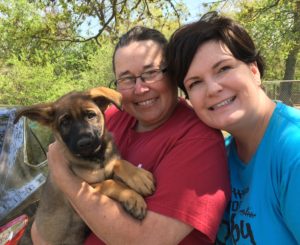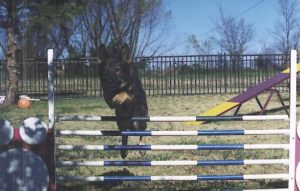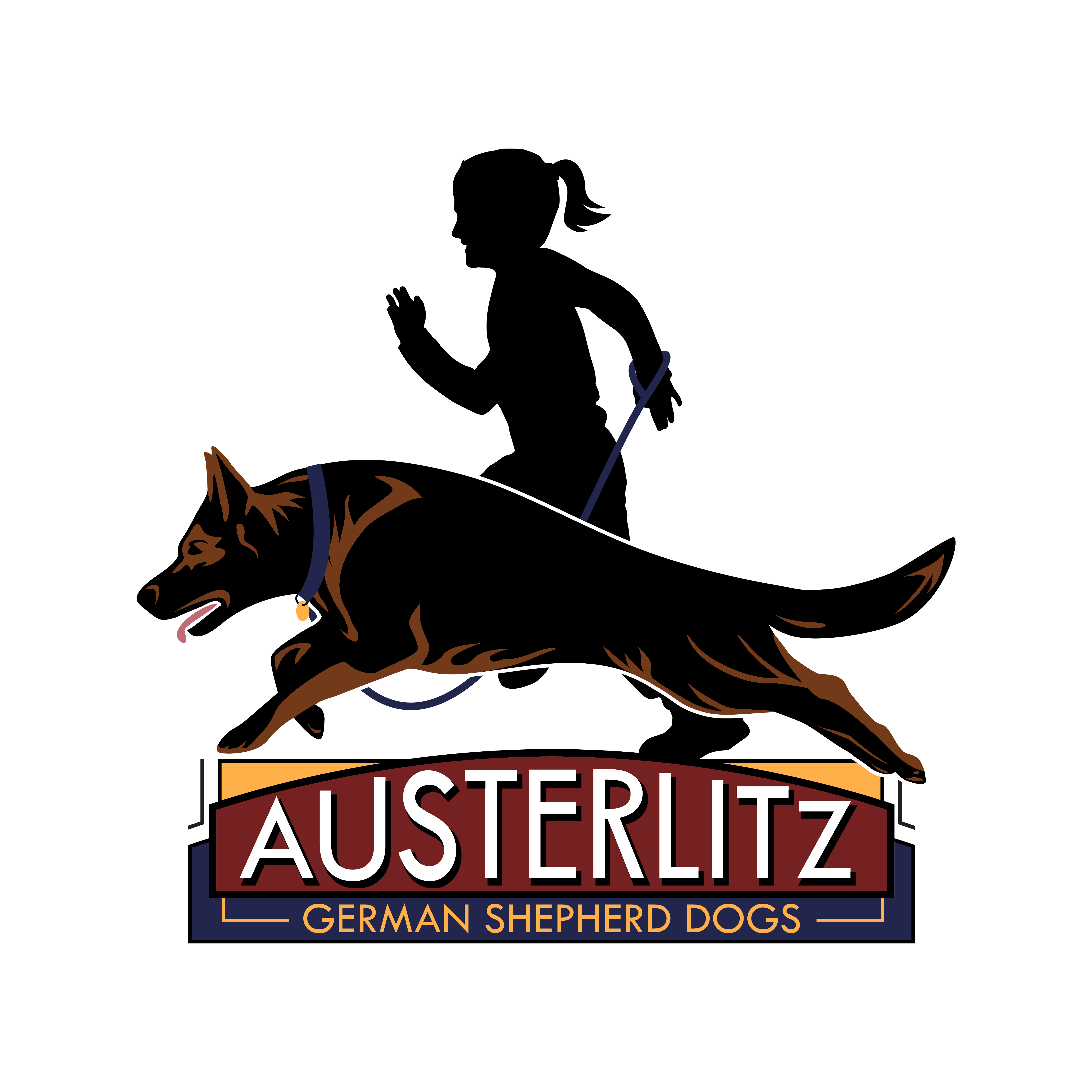Transitions are a part of every dogs life, how can we use a puppy’s transition to it’s new home to teach a puppy to anticipate transitions as positive experiences, and face change with adaptability.

Most breeders, and many new puppy owners, have experienced fall out from a rocky transition. Like the proverbial snow ball growing larger as it rolls down snow covered hill, if a puppy becomes distressed during transition a cascade of undesirable effects can accumulate. Sadly, these can result in an overwhelmed family returning the puppy to the breeder, or an overwhelmed puppy experiencing potentially life altering anxieties, fears, illnesses, or traumas.
Many of you know the story of my own dog Indeigh, my second German Shepherd puppy and one of the most cherished dogs of my life. But Indeigh had a rocky start, not knowing how to help this puppy, who was so unprepared for transitioning into my home, had far reaching effects for her. The weeks that snowballed into months, of distress, upset, and frustration we both experienced taught Indeigh to view change and novelty with suspicion and even anxiety. This became a lifelong struggle for this highly acomplished dog. I don’t blame Indeigh, or myself, or her breeder, none of us knew how to prepare or help her. But things have changed in the world of dogs, and animal behavior in general, and as said so famously by Maya Angelou “when you know better, you do better”. Now I know and I want to share what I’ve learned in the nearly 30 years since I brought Indeigh home.

Indeigh, once again, this is for you. I miss you, and I’m doing better.
What can we do to foster resilience in transition? How can we, as breeders, leverage things we already do to help optimize our puppy’s native born temperament? How can we make the most of this first big life transition, using it to create a foundation of adaptability and confidence in our puppy, making the most of each inherited trait.
You might think of this as coddling, puppies need stress you would say, to grow into adaptable dogs. You would be right, stress is vital and important to both mental and physical development and growth, however distress is not. Distress creates room for unintended learning, distress doesn’t foster strength and resilience, distress is to be avoided. We don’t want to protect puppies from stress or stressful events, but instead to give them the skills they need to emerge from those inevitable life events stronger, resilient, adaptable, and confident.
Adaptability and resilience grow from experiencing small, age appropriate, amounts of stress as positive experiences. That’s the experience we want to foster, it’s the growth medium for confidence.
First, our goals:
1. Puppy will learn to anticipate transitions and change as positive experiences that lead to good things. Puppy will feel competent in new experiences.
2. Family will learn how to teach their puppy that transitions are positive experiences using primary reinforcements (social interaction, food, play), and conditioned reinforcers (clickers and other markers) primarily through operant conditioning.
We already have the tools we need, we are already working hard, when we look forward to plan life’s first big transition we increase the chance of a smooth transition week for our puppy and the new family, and orchastrate an environment to guide our puppy along a path to adaptability and competence throughout life.
Using the puppy raising protocols from the film Puppy Culture as our guide, here is a list of 5 tips and techniques I, and other breeders, use to optimize puppy’s transition to it’s new home. I hope you enjoy this list and find it helpful!
Learn more about Puppy Culture here:
1. Create a lover of Novelty.
2. Packing Their Bags
3. Turtle Puppy: I take my home with me.
Turtle Puppy: I take my home with me. Easy Transitions Part 3
4. Schedule Choas And Learn To Love The Unexpected.
Schedule Chaos And Learn To Love The Unexpected. Easy Transitions Part 4
5. A bridge over changing waters.
